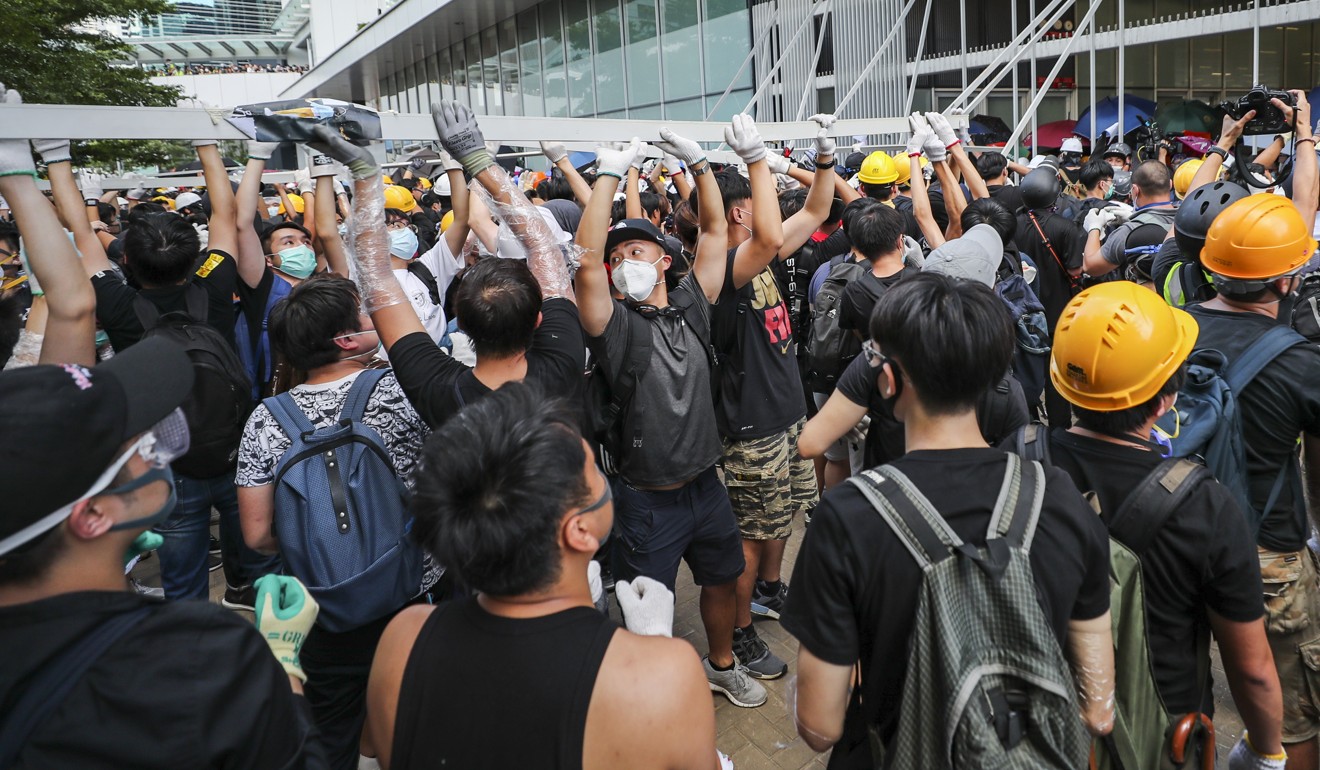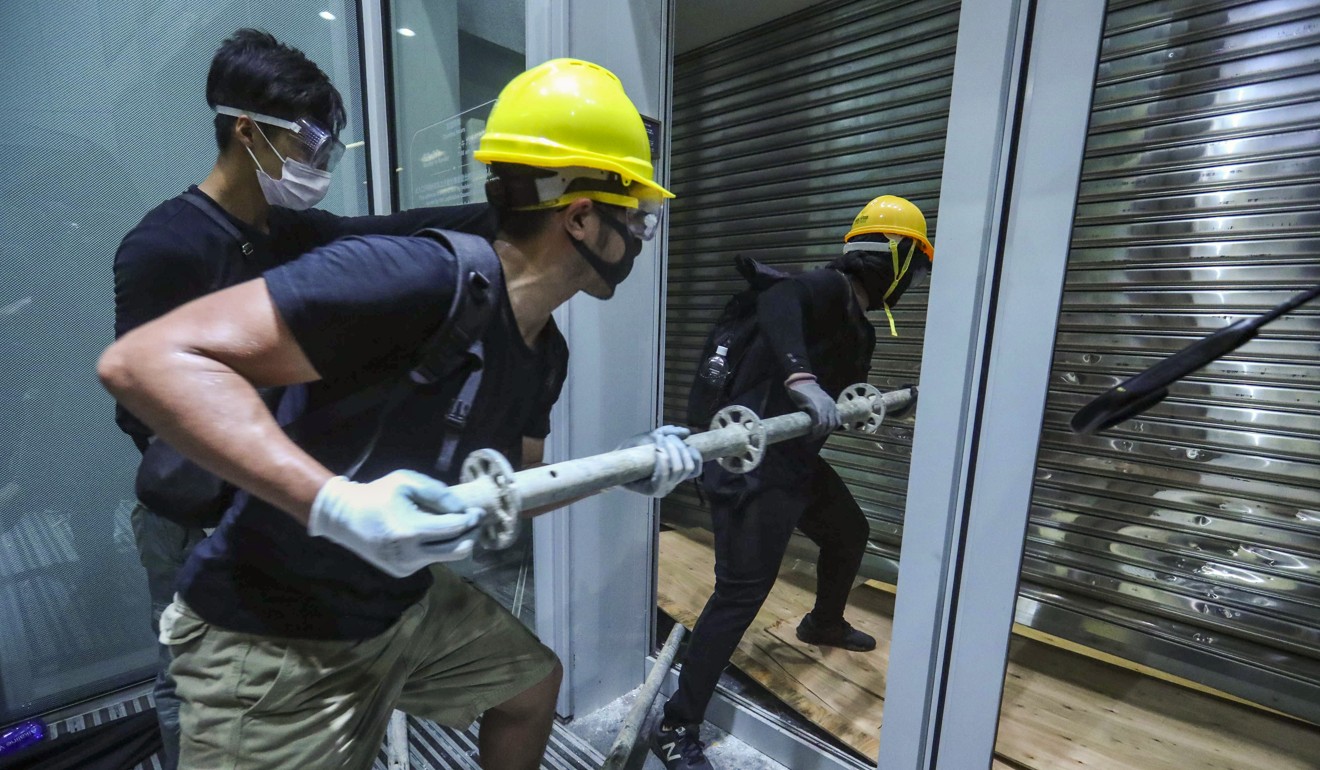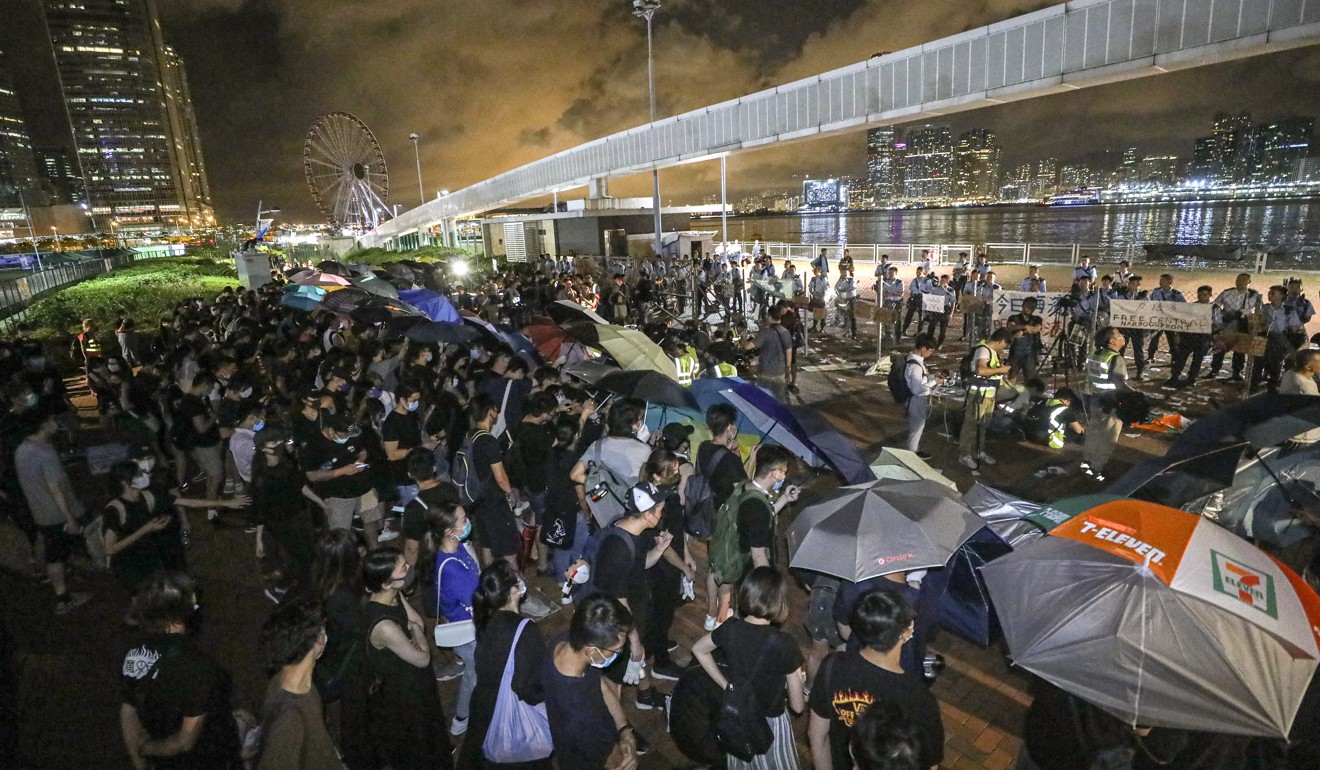
Anatomy of a divided city: Hong Kong extradition protesters say frustration with government brought them to the streets
- Handover anniversary unfolded in a series of escalating clashes, outbursts and destruction
- ‘This government never responds to our demands – it’s shameless’, says protester
As a rule, July 1 in Hong Kong is a peaceful day, a time to celebrate the city’s freedoms on the anniversary of its return to Chinese rule in 1997. This time it was different.
Instead of calm demonstrations, Monday unfolded in a series of escalating clashes, outbursts and destruction. It was a day of anger and solidarity with an estimated 550,000 black-clad protesters taking to the streets to denounce the government.
The day of unrest began at Victoria Park in Causeway Bay, but its causes went back to the government’s now-suspended extradition bill – if not much further.
By late afternoon, hundreds of thousands of people – most dressed in black – were marching peacefully through Hong Kong streets.

Earlier, violent clashes had broken out between protesters and police. Throughout the day, meanwhile, radical demonstrators tried to swarm the Legislative Council, shattering glass doors and dismantling metal bars.
For many Hongkongers, recent events had become too much to bear and some said it was years of frustration that brought people to the streets.
“To me, July 1 was just a public holiday, and I love public holidays,” said Chloe Wong, a 43-year-old school administrator.
Hong Kong police fire rounds of tear gas at protesters after day of unprecedented violence
Wong said she used to be a “Hong Kong pig”, referring to a self-centered person who cares nothing for freedom or human rights – but not any more.
“Now, I’ve woken up,” she said.
Wearing a black T-shirt, Wong was among the hundreds of thousands who braved the searing heat on Monday – the 22nd anniversary of the city’s handover to China – to protest against the government and its handling of the extradition bill.
It was the third mass protest march in less than a month. A march on June 9 drew an estimated 1 million protesters and a march on June 16 was attended by an estimated 2 million.
In between the marches and other protests, Chief Executive Carrie Lam Cheng Yuet-ngor announced a suspension of the bill, which would have allowed Hong Kong to extradite suspects to other jurisdictions, including mainland China. Lam was also forced to apologise for the government’s handling of the issue.

But the protesters were not satisfied. They issued demands, including that the bill be scrapped and an investigation into accusations of police violence be set up. They also called for the arrested protesters to be released and cleared, and that the term “riot” not be used to describe the anti-extradition protests.
The government did not respond.
Journalists ‘insulted, spat on, kicked’ at Hong Kong pro-police rally
On Monday, many shops were closed, roads blocked and restaurants empty. The flag-raising ceremony in Wan Chai was moved indoors and placed under high security.
Celebrations of the handover this year failed to boost public enthusiasm. There was a flotilla of 70 fishing boats festooned with flags, an open house at the local People’s Liberation Army (PLA) garrison, and a public fair that failed to pique much interest.
Wong said Hongkongers’ lack of enthusiasm stemmed from how the city had been governed since its handover from British rule. In her words, the quality of life had deteriorated and the government had refused to listen to the public’s concerns – as evidenced by the extradition bill crisis.
“I don’t often join marches, but my life has become worse and worse,” she said. “I come in the hope of a better future.”
King Shen Ka-man, a 27-year-old civil servant, said he would continue to march until the government fully retracted the bill.
“The government is now trying to stall things so the people lose the momentum,” Shen said. “It will eventually work. But before it does, we need come out and make a statement.”

Lau Ming-ming, a 59-year-old retiree, said she had been angry about the government since it decided to go ahead with a plan for 1,000 hectares of man-made islands off Lantau Island – a project estimated to cost at least HK$624 billion (US$80 billion).
Lau said she also opposed the government’s transfer of a stretch of Central harbourfront to the PLA to be used as a naval base.
Booths close early at handover celebration as protests cause drop in visitors
“This government never responds to our demands,” Lau said. “It’s shameless.”
In Victoria Park, where the march had started, people smashed and stepped on the records of pro-government singers, including veteran Canto-pop star Alan Tam Wing-lun.
Also in the park, a three-day “Greater Bay Festival” event fizzled to a close. The festival’s final day was meant to until 9pm, featuring music, food stalls and booths showcasing technology products
But by about 4.30pm, the venue was almost empty. Most of its 35 booths were closed because of low turnout, and some exhibitors had opted to close down and join the march.
Julian Lau, who was working at the booth for the Hong Kong Freestyle Kendama Association, said some left as early as 2pm.
“They left because there were too few people at the festival,” he said, “and some left because they wanted to attend the protest next to the festival.”


